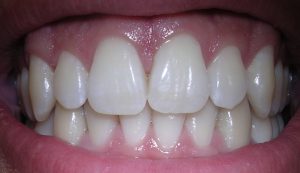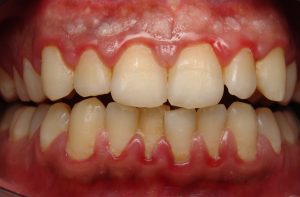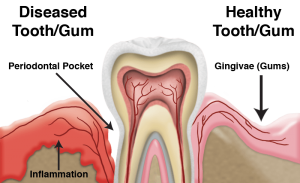WHAT IS GUM DISEASE
Most forms of gum disease involve the infection and erosion of gums. In some cases, it spreads below the gums to infect the bone that supports the teeth. Gum disease is seen in various stages, from a mild condition (Gingivitis) that is easily reversible to severe forms (Periodontitis) that require more comprehensive treatment.

WHY YOU SHOULD TREAT GUM DISEASE IMMEDIATELY
Signs of gum disease can be seen in certain regions or across the entire gums. These include:
Red gums
Swollen gums
Painful gums
Gums that are receding or pulling away from the teeth, making them appear longer than before
Loose or shaking teeth
Pus in the gums
Bad breath which is persisten

Like most dental diseases, gum disease is a progressive disease. In the initial stages, the infection is limited to the gums. If left untreated, this gradually spreads to the bones supporting teeth and starts eroding them. Eventually, the teeth lose their vital bone support and start shaking. At this stage, one may experience difficulty in performing simple tasks like chewing due to loose teeth, and also suffer from persistent bad breath.
Therefore, the earlier the treatment is sought, the lesser the damage done.

HOW DO YOU TREAT GUM DISEASE?
Various treatment procedures include:
Scaling and Polishing
Root planning or Curettage
Flap Surgery
Gingival Grafts (Periodontal Plastic Surgery)
Bone Grafts


